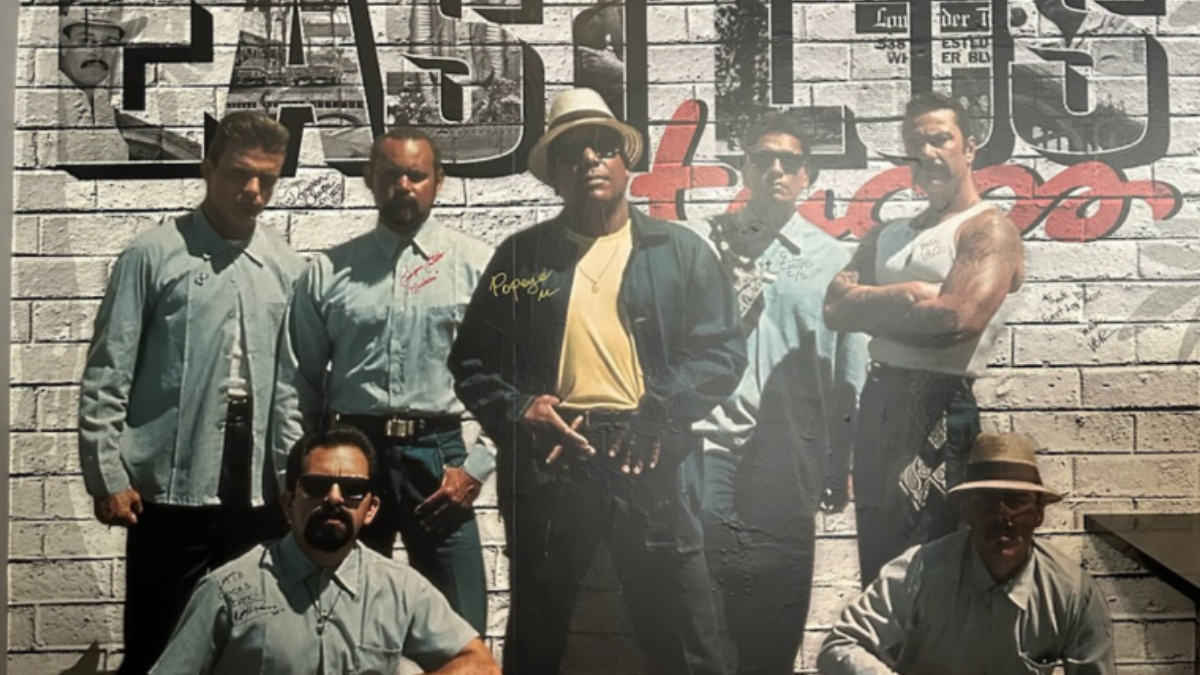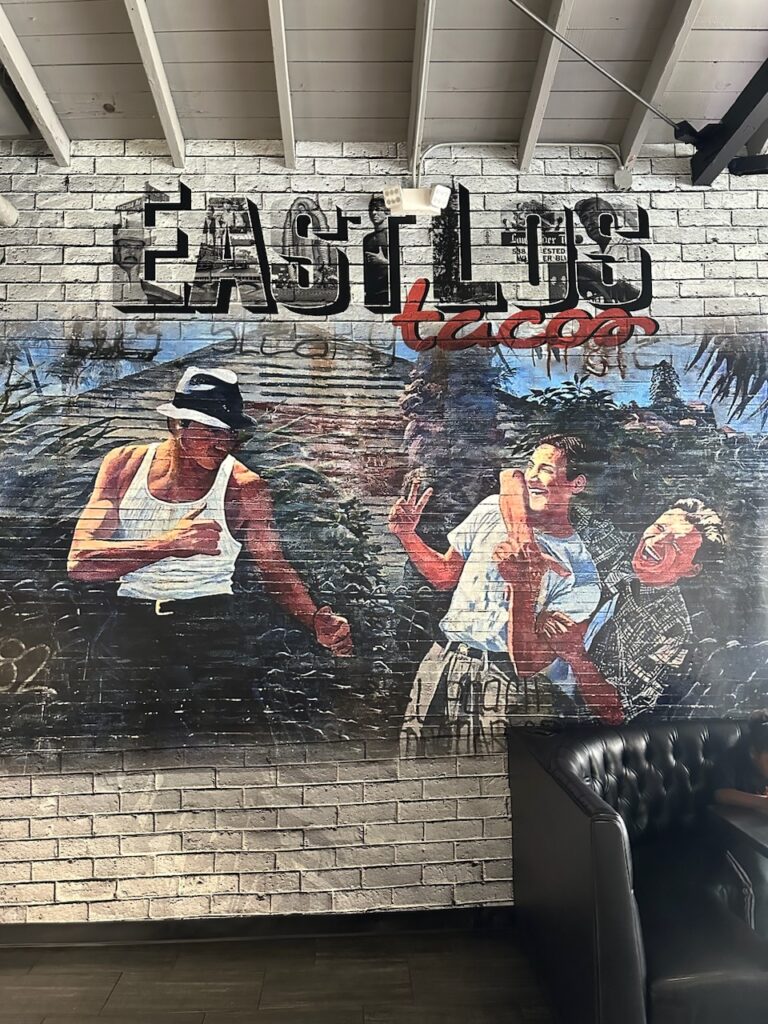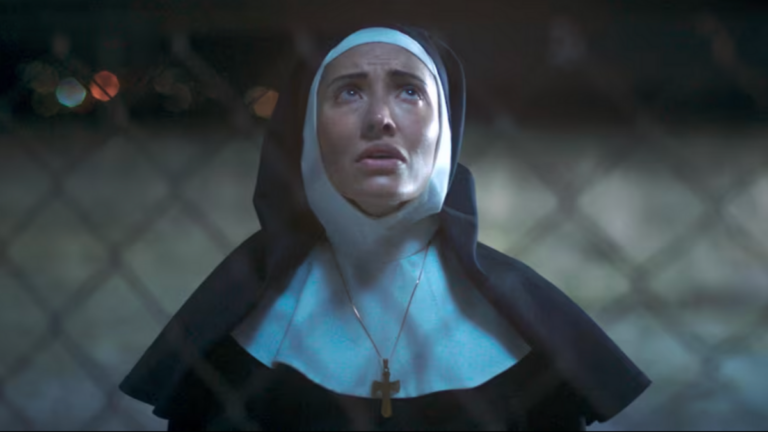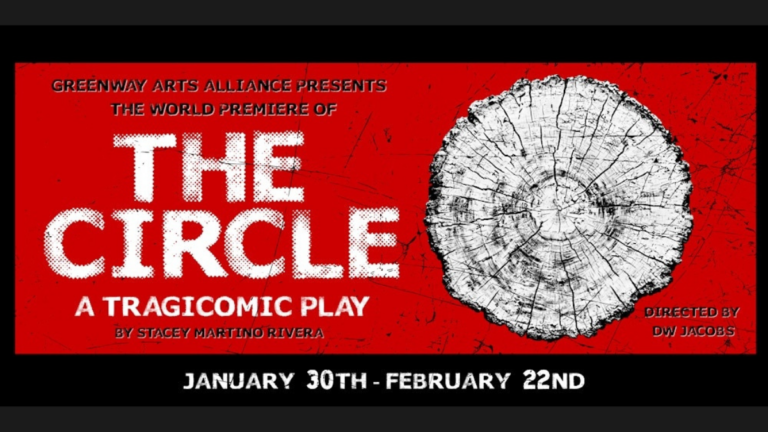
By Catherine Jones
It’s not just a movie. Blood In, Blood Out is a way of being. I should know. I’ve seen the 1993 movie, and it’s changed my being forever. And I’m not alone.
As the proud member, and a “top contributor,” of Facebook fan groups solely devoted to the 30-year-old film, I know first-hand how BIBO (that’s short for Blood In, Blood Out) is top of mind for over 90,000 of us on the social media platform (and beyond, of course).
Throwing around a “porkchop” reference or a “vatos locos forever” salutation is a way of life. It’s the essence of who we are. And so many of us loco strangers from around the world wouldn’t have this bond if it wasn’t for a movie about Chicano gang life in America’s prison system. Seriously.
Blood In, Blood Out is a way of being
“This movie made me want to move to East LA right now,” Comedian Josh Pray announced in a social media post with over 8.5M views. Like many of us, he admitted to never being the same after watching the “cult” classic in his over 3-minute viral clip. “Blood In, Blood Out should be in the National Movie History Hall of Fame, yo.”
“It has become so much larger, obviously, than the original concept.” Enrique Castillo, the actor who played Onda gang leader, Montana, told me in a recent interview. Castillo’s a really big deal for us BIBO fans, who see him as the heart and soul of the gritty film.
Where are my manners? Allow me to formally introduce the epic film to those not familiar with this masterpiece. Blood In, Blood Out is a crime drama directed by Taylor Hackford, and written by Poet (and former convict) Jimmy Santiago Baca and Jeremy Iacone. The movie follows the lives of three Mexican-American cousins — Miklo, Paco, and Cruz — as they navigate the world of gangs in East Los Angeles. There’s more. So much more.
The film spans several decades, exploring the struggles and choices faced by the three cousins. To prove how accurate and authentic it is, Blood In, Blood Out primarily takes place and is filmed in East Los Angeles and at San Quentin State Prison, with real prisoners on the set. When one of the cousins, Miklo, joins a powerful prison gang called La Onda, his life (and ours) are never the same.
“I knew that the Mexican American community was really going to embrace this film,” Castillo told me. (And, yes, as a Blood In, Blood Out fan, interviewing gang leader Montana about the film was amazing, and intimidating since Castillo’s voice is Montana’s. The two are eerily similar in other ways, I discovered, in real life.)
Filming at the prison “was grueling, disturbing, and draining” Montana, I mean, Castillo, told me. But I can attest that watching the prison scenes was equally as nerve-wracking for the viewers as well.
But there’s so much more to Blood In, Blood Out than witnessing gang life in prison. Yeah, it provides a gritty portrayal of gang culture and the impact it has on individuals and their communities. But it also carefully delves into themes of loyalty, family, identity, and the consequences of one’s choices.
So, what causes so many of us to bond over a 30-year-old film about “Chicanoism” in East Los Angeles? Quite simply: it’s relatable. Yeah, La Onda and life in San Quentin State Prison and the streets of East Los Angeles is oddly something a lot of us can identify with. Or maybe it’s the family part we’re attracted to.
“If you break it down, it’s all about familia,” Proud BIBO Film Historian (and Castillo’s wife of 42 years) Bel Hernandez explains, “This is a story about us.”
The test of time has proven that the story is a family classic, being passed down from parents to their children – no matter how non-PG the film may be – giving it a three-decade lifespan. “The fans do not know it as a cult classic. They consider it a classic,” Hernandez told me. “And children watch it with their parents….it’s almost become a right of passage.”
As for the actors, many will always be associated with the film, which became a launching pad for many of them. “It’s the project that I’m most identified with,” Castillo explained.
Some see the film as the Latino equivalent of the classic The Outsiders for its contribution to so many acting careers. Blood In, Blood Out served as a launch pad to further the careers of many actors, including Damian Chapa, Jesse Borrego, Danny Trejo, Benjamin Bratt, Billy Bob Thornton, Lupe Ontiveros, Raymond Cruz – who all starred in the classic.
Today, Castillo said he and the other actors are still spotted by the loyal fans. Luckily, to the delight of all of us, they still sign autographs and attend events celebrating the film. One recent event was held at East Los Tacos, a restaurant named and decorated by its owners, Erika and Joaquin Armenta, as an homage to the 1993 film. “BIBO is a staple to East Los Angeles. They go hand in hand.” Erika Armenta explained. “When you think of East Los Angeles, Blood In, Blood Out comes to mind.”
But the movie, like its protagonists, wasn’t given a fair shot from the get-go, the film’s historian explained. Executives at Hollywood Pictures, a division of The Walt Disney Studios were afraid that the film Blood In, Blood Out – named after the code meaning a gang member must kill to get in a gang and die to leave the gang – would cause more violence upon its release. “They were afraid there was going to be trouble,” Hernandez said. “Because the LA riots had just happened.”

After the debut of the 1992 film American Me, a drama also about East Los Angeles gangs and starring James Edward Olmos – in addition to the devastating 1992 Los Angeles riots (stemming from the beating of Rodney King), Blood In, Blood Out received what some believe was unfair scrutiny at the time.
To fix any potential problems, the film was renamed Bound by Honor and given a limited distribution. Then it was quietly pushed aside by the film’s parent company Disney, some believe. Then, with word of mouth and eventually social media, a surge of fans over a 30-year span has spread the BIBO word.
And now it can be found everywhere: TikTok, YouTube, Facebook, restaurants, film festivals, fan events, online t-shirt storefronts, and beyond. Not just an LA thing, thousands worldwide have been boasting its significance from Los Angeles to Tokyo to Amsterdam, helping the film gather up awards along the way.
What does the future hold for Blood In, Blood Out? Castillo seems to know, explaining: “It will be discovered and rediscovered….it has stood the test of time and will only grow in popularity.”
And a bright future for the film can only mean one thing for fans everywhere: Vatos locos forever!
Cathy’s writing has appeared in The Washington Post Magazine, USA Weekend, People, Romper.com, The Miami New Times, and dozens of other media publications and online sites. Her opinion pieces have appeared on Today.com, El Tiempo Latino, and more.
(Vatos locos forever!)
This article was originally published on Nuestrostories.com.




